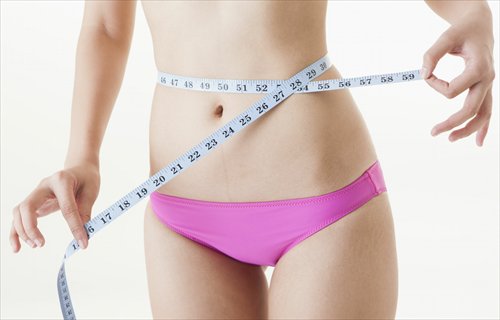What you don’t know about juice cleanses will shock you


Photos: IC
With several fancy bottles of colorful fruit and vegetable juice lined up in front of you, it may be hard to resist the temptation to drink them. But what if these drinks were the only sustenance you had had for the past week? Would you still find them tempting?
This type of diet, which requires a person to drink only juice so they can "cleanse" their bodies or lose a few pounds, has become quite popular overseas. Although still controversial, this fever has also spread to China.
No matter if it's promotions by retailers or people bragging about the diet, these pretty bottles of juice appear everywhere on Chinese social networks.
But are they as good for you as some people claim?
Thinking long term
"There's no scientific basis behind the concept of 'detoxing,'" dietitian Gu Zhongyi from the Beijing Friendship Hospital told the Global Times.
Gu explained that if people want to lose weight they only need to ensure that they burn more calories than they take in everyday. However, while the amount of calories in juice is not that high and will lead to weigh loss over the short term, this will most likely be in the form of water and muscle loss. Additionally, as a person's metabolism slows down from trying to purely get by on juice alone, the rate at which they lose weight will also slow down. When a person resumes a normal diet, any lost weight will be quickly regained. So over the long-term juice cleanses are not an effective strategy.
"When it comes to detoxing 'poisons' from the body, healthy people have natural processes that handle this work, there's no need for anything extra," Gu said.
Of course this doesn't mean fruits and vegetables are bad for you. Gu pointed out the advantages and disadvantages of various juice products.
The benefit of fruit and vegetable juice is that it contains vitamins, minerals and fiber, which is good for people who usually eat an abundant amount of fish and meat. However, drawbacks include the high amount of sugar (especially in fruit juice), which can rapidly elevate blood glucose and cause serious health problems.
Another negative, in order to appear more appealing juice brands normally used for cleanses try for a "clear" look, and so tend not to contain high amounts of fiber.
Not all negatives are physical either. Many who try juice cleanses often talk about how they feel mentally as well as physically.
Constant hunger and always thinking about food are two obvious symptoms, but some people on cleanses also report feeling depressed and other emotional issues.
An article by Cynthia Sass on health.com titled Juice Cleanse Dos and Don'ts opines that "striving to eat clean, all natural foods is fantastic, but you don't need to do a cleanse or detox to be healthy. If your body, mind, or both don't react well to limiting your diet, even for three, five, or seven days, don't put yourself through it."
Ancient fad
Although juice cleanses are rather new, the idea of the "fast diet" has been around forever. Different kinds of products designed to replace people's normal diet or to "cleanse" the body were popular a few years go, like smoothies or lemon juice.
The diet laid out in the book The Fast Diet by Dr. Michael Mosley is one of the more popular ones the world has seen in recent years. So popular that the book has been translated into Chinese.
Mosley's method requires five days of normal eating and two days of reduced caloric intake: 500 calories for women and 600 calories for men. The idea is that intermittent fasting can help a person lose weight while also staying healthy.
While fads such as these are new, the idea of improving health by controlling one's diet has actually been around for millennia.
Religious Taoism had the concept of bigu, which literally means "avoiding grain." The concept was to avoid traditional heavy grains, and instead subsist on nuts and herbs, which along with methods to control one's breathing could lead to immortality.
While people today may not be looking to live forever, they certainly are concerned with how they look. In today's appearance focused world, an increasing number of celebrities, including renowned actresses and super models, can also be found using traditional fasting methods as a means to lose weight and stay healthy.
On Saturday, Chinese author and TV celebrity Le Jia posted an article on his personal Sina Weibo that recorded his own fasting journey. The post has been clicked 700,000 times. He described it as "a wonderful experience that you should experience at least once in your life."
In his post he explained his struggles with different health issues brought about by years of overwork. One day coming down with a case of shingles, he decided to try a fruit and vegetable diet to detox himself.
After seven days of fasting, he said he noticed a reduction in muscle mass around his pectorals, but "the day I finished my fast, my rash had almost healed.
"I decided to no longer eat meat and became a vegetarian... The most obvious benefit so far is that I'm very regular."
Although many have tried to follow in Le's footsteps, Gu warns that fasting is dangerous.
"Some research on intermittent fasting diet has indeed produced good results, but it is strictly applicable to certain groups. For most people, it will still do more harm than good. A balanced diet and eating meals regularly is still healthier," Gu said.
Newspaper headline: The truth about detoxing